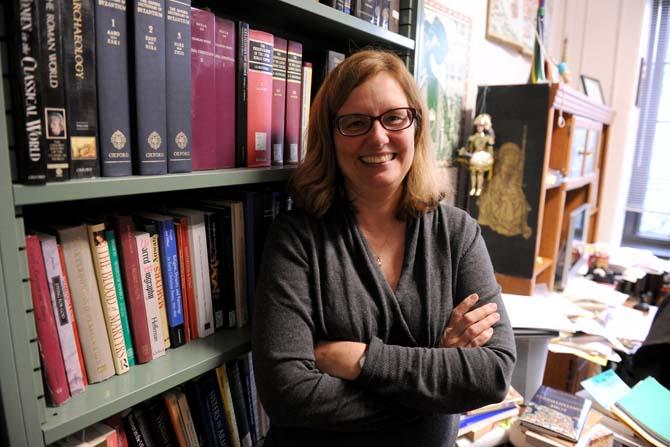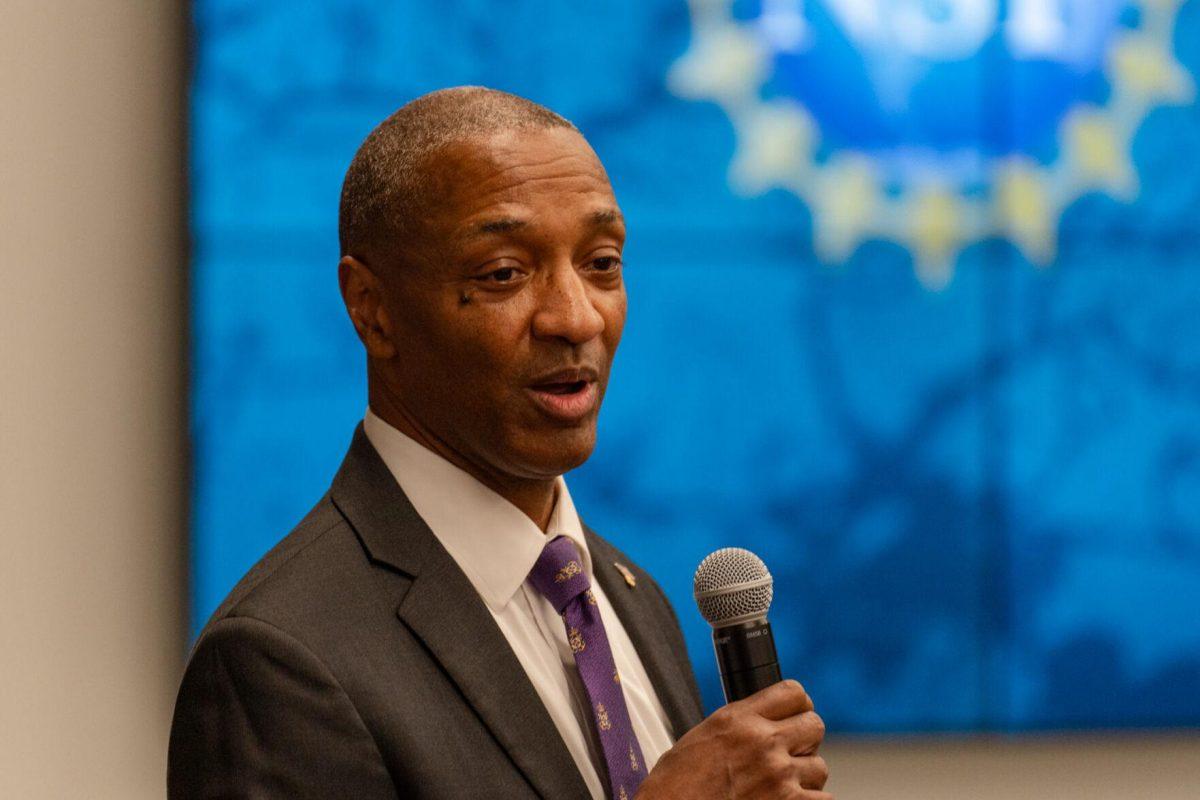Editor’s Note: This is the third in a three-part series looking at the University’s recent faculty salary raises. See more at www.lsureveille.com/salary
After about four years without salary increases, some faculty and staff on both ends of the pay spectrum said the recent raises function as a symbolic step in the right direction.
Jesse Walker, professor emeritus of Geology and Anthropology, has been working at the University since 1960.
While he is currently retired and not on salary, he still does research through the University.
Money never crossed his mind when he pursued a career in higher education, Walker said, describing the seven years his family lived in a tent during the Great Depression.
He became chair of the department in 1962, during a time when the number of faculty tripled and graduate students quadrupled.
“It was a pretty good time,” Walker said. “You could get virtually anything you wanted. Any pay changes I had came naturally. The University has really been good to me.”
Walker said he never struggled with a lack of raises but sympathizes with faculty who waited more than four years for their raises.
However, he said monetary concerns should not be greater than a love for the profession and energy spent worrying on salary increase could be spent research or teaching.
“The monetary end of it shouldn’t be a high priority. Your interest for the field should trump,” Walker said.
Associate Dean of the College of Humanities and Social Sciences Janet McDonald said humanities professors who teach general education classes must deal with a large workload while also reaching out to students who may not want to be in the class. Yet, she said, they still make low range salaries.
“I value what they do very highly,” McDonald said. “Their salary is not as high, but you have to deal with the budget you have.”
Associate history professor Maribel Dietz said her job is rewarding in every aspect from the students she helps to the eras in history she studies, but her monetary reality is one that proves true for many faculty members. Dietz and her partner both work in higher education to support their family. She said she hopes the merit increases will remain constant.
McDonald said the professors in her college are not in the field for the money but for the love of the job.
“A lot of people do it because they love it, but they still need to be making a salary that shows their value to society,” McDonald said.
Dietz has been at the University for 18 years and said she is inspired by the positive University culture, even though the pay is not ideal.
“Being on a college campus, surrounded by young people who are discovering, it’s a really inspiring thing,” Dietz said.
Dietz said the pay increases helped, but what made her happiest was the end of the hiring freeze.
“People went elsewhere for a while and we could not replace them because there was no money,” Dietz said. “Recovering from the freezes is very difficult; when they first started hiring we still hadn’t gotten a raise.”
Losing parts of the department not only hurt research and teaching demands, but the morale of the department was damaged, Dietz said.
“A lot of people do it because they love it but they still need to be making a salary that shows their value to society.”
Editor’s Note: This is the third in a three-part series looking at the University’s recent faculty salary raises.
Professors appreciate recent salary raises
December 4, 2013
Maribel Dietz





